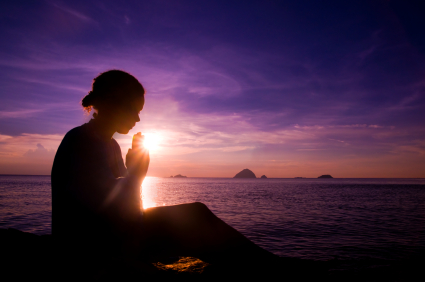

You know how important it is to take care of yourself while taking care of others. You have heard the flight attendant say: “put on your own oxygen mask before helping others.” Those of us committed to making the world a more connected, peaceful place know the difficult, personal impact of seeing children starving, families ripped apart, or the grief of losing loved ones.
But how do we develop and utilize our own resilience plan to ensure we remain truly effective while witnessing adversity, perhaps in a culture different from ours, with perplexing language, and yet, where our clients have such great need and high expectations of us? How might we use these skills to stay well when faced with life’s unexpected setbacks?
Spiritual and mind body practices may not seem important. They are.
We know this from victims of concentration camps, kidnappings, incarcerations. Believing in a power greater than ourselves, having faith and employing spiritual practices are often pivotal in getting through horrific experiences.
Many professionals spend a lifetime working with survivors of trauma, helping them integrate what they saw, heard and felt into their life so they can move on. They too have achieved excellent personal results through mind/body techniques such as meditation and yoga.
When embarking on a difficult task, consider your own beliefs and faith. What are the ideas and practices which typically you get through difficult times? For each person these are different. If you have none, here are several examples that have been useful to foreign correspondents and others facing similar challenges.
Military training and Olympics conditioning both build spiritual practices into their preparation for adversity and challenges. A major goal of both these groups is peak performance.
Monks and other spiritual leaders use several practices. Their day typically starts with a contemplation of the intended focus of the day. A break in the middle of the day provides time for meditation and assessment of how one is doing, not only with the tasks of the day, but also with staying connected with oneself: taking extra time for personal care… organizing your space… arranging your things… cleaning yourself and your habitation. The day often ends with another meditation on what has been accomplished and the meaning of the day to the individual.
Usher in a state of calm and being “in the present”
Anyone can meditate and the more often you practice, the more rapidly you can call up within yourself a state of relaxation and the experience of being very much “in the present”, “in the here and now.” This is enormously useful anytime, but especially in challenging periods and during exposure to danger.
Many find benefit from listening to instructional or meditation recordings. These can be purchased, downloaded and listened to on the internet. Two good sources are ‘calm.com’ and ‘headspace.com.’ When you have identified one (or several) that resonate and ‘work’ for you, bring them on your next assignment.
Practice the discipline. There is no “right way” to meditate. It involves placing total focus on your breath and allowing all ideas and thoughts to pass you by, without attaching to any of them. Keeping your eyes closed though “waking meditation” is a mainstay of many spiritual practices.
Yoga is another practice well-suited to mitigating unpredictable circumstances; there too, no particular equipment is required. Again, an array of yoga tapes or videos can be downloaded or purchased to provide a practice routine whenever and wherever needed.
With both mediation or yoga video or audio resources, learning from an expert can get you started. It can produce an experience of deep relaxation, focus and readiness, all important in difficult situations.
Focusing, another embodied technique, is particularly useful. Not only can Focusing serve as an internal process, but it can also shared in a community building process. It’s easy to learn and taps into our body-knowing.
Books abound on these subjects and many YouTube videos can help you get started. By paying attention to your inner wisdom and intuition, you will find that you are less reactive in difficult situations, able to process what happens around you in a healthy way, and come to terms with events in a way that is kind and caring.
There are many ways to build your resilience for difficult times. One way is incorporating spiritual and mind-body practices into your daily schedule. When this becomes part of your routine, you are more likely to use them and reap the rewards. By developing your resilience, you will be better positioned to help others work toward achieving theirs.
Copyright © 2024 - Focusing Initiatives International, All Right Reserved. - Privacy Policy, how we process your personal data.